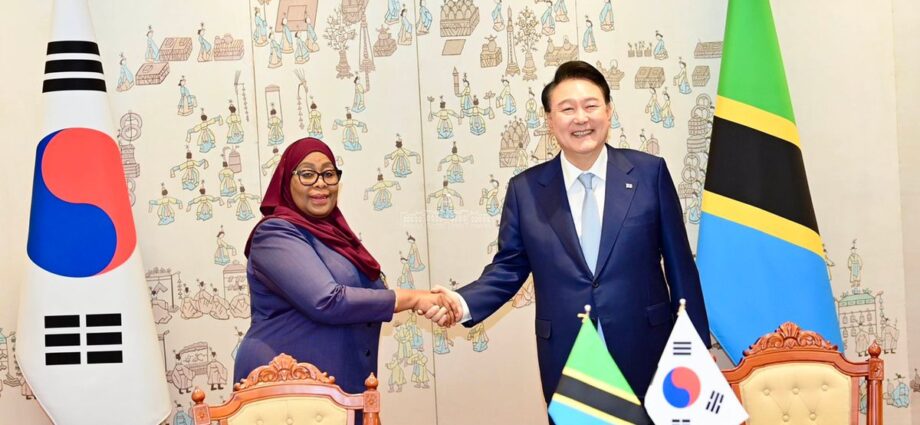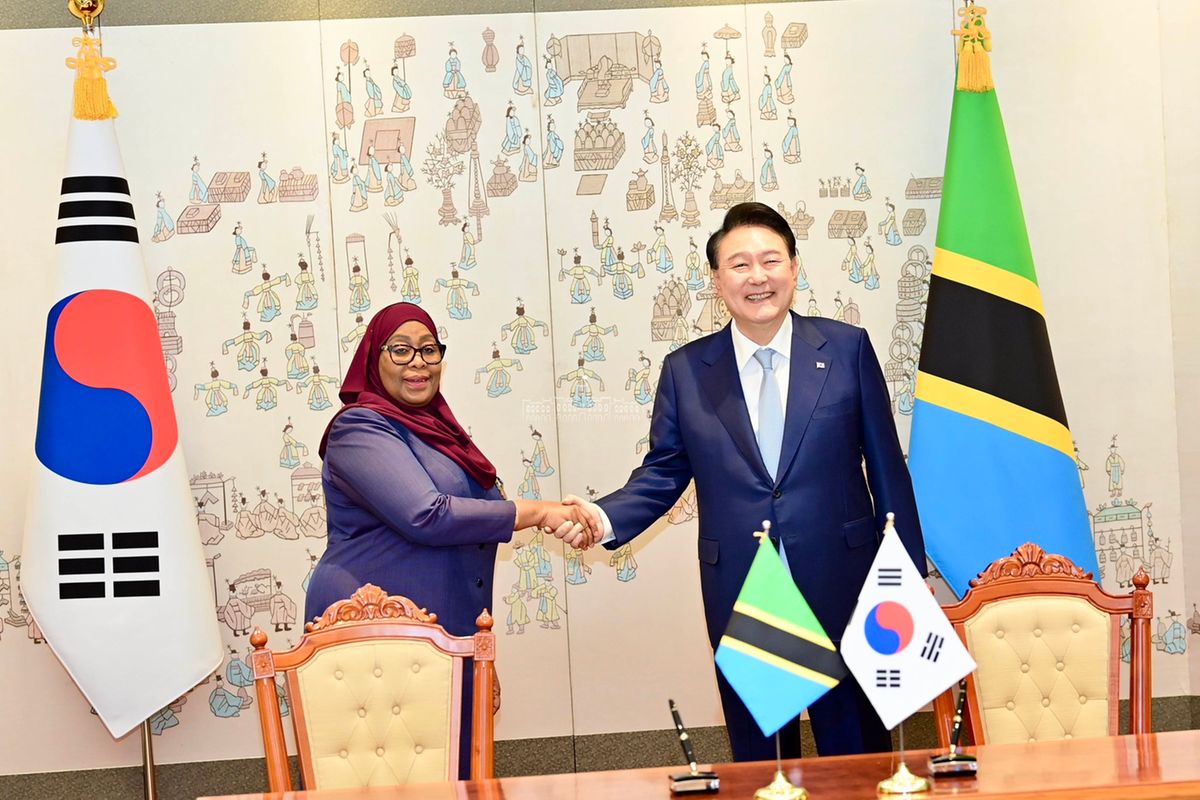By Bakari Kimwanga
Tanzania has come a very long way indeed in the last few years as far as opening up the nation through economic diplomacy is concerned.
President Samia Suluhu Hassan deserves plaudits for this positive development because Tanzania was, for all intents and purposes, a pariah state when she came into office on March 19, 2021.
Re-establishing and strengthening relations with the rest of the international community has been one of the Sixth Phase Government’s priorities in the last three years or so.
It will be recalled that President Hassan’s first foreign visit as Head State was to neighbouring Kenya, with had uneasy relations with Tanzania punctuated by on-and-off diplomatic and trade spats for several years.
The two countries, which happen to be the biggest economies in the East African Community bloc, ironed out their differences during and immediately after the visit and have since enjoyed cordial relations.
Since Kenya is the largest investor in Tanzania among African countries, the relationship between two countries is strategic and President Hassan’s successful visit to the neighbouring country was among Tanzania’s significant diplomatic achievements during her early days in office.
Tanzania had previously assumed a confrontational and haughty stance in diplomacy and on the international stage in general, leading to its gradual isolation by fellow nations and development partners alike.
This is despite Tanzania having invested heavily in building a cadre of skilled personnel in international relations over two decades or so. It should be noted that two former presidents – Mr Jakaya Kikwete and the late Benjamin Mkapa – had previously served as Foreign ministers and firmly believed in nurturing competent professionals in this field.
In contrast, the Fifth Phase President, the late John Magufuli, had no diplomatic background like his two abovementioned predecessors and his vision for Tanzania was more or less inward-looking. Also, Magufuli relied on members of his inner circle and other trusted individuals, rather than those trained in international relations, to handle Tanzania’s ties with the international community.
Since coming into office three years ago President Hassan has made ambassadorial appointments that have been praised by many for giving an opportunity to professionals who were nurtured during the Kikwete and Mkapa presidencies.
This appreciation of diplomacy has its roots in the early days of the United Republic of Tanzania, whose founders – Mwalimu Nyerere and Sheikh Abeid Amani Karume – knew the importance of unity among nations. Mwalimu, for instance, was willing to join Kenya in forming the East African Federation and serve as its ambassador to the UN, leaving the presidency to Kenya’s founding president, Mzee Jomo Kenyatta.
Mwalimu once chaired the South Commission, Mkapa led the Globalisation Commission and Kikwete is still being entrusted with international diplomatic tasks. All this is thanks to respect Tanzania commands globally and which President Hassan is seeking to consolidate.
Tanzania, being a developing country, needs to have strong relations with other nations and global institutions since this is the most effective way of ensuring sustainable growth. As the popular adage goes, “If you want to go fast, go alone. If you want to go far, go together”. I am sure that is the philosophy guiding President Hassan’s administration.
Tanzania’s relations with the international community were strengthened further when the Head of State visited France and Belgium in February 2022. It opened diplomatic doors which were hitherto closed.
In May this year, President Hassan returned to France where she co-chaired the Clean Cooking Summit at Unesco headquarters in Paris. The meeting mobilised $2.2 billion for promoting clean cooking in Africa.
Environmental degradation currently affects about 412,000 hectares annually in Tanzania and the switch to clean cooking will not only protect the health of millions of women in Tanzania but also prevent further damage to the environment.
The government, as directed by the CCM Election Manifesto, is currently allocating funds to enable local authorities to plant 276 million trees annually across the country.
From May 31 to June 6 President Hassan visited South Korea, where Tanzania secured a $2.5 million (Sh6.5 trillion) concessionary loan to finance key development projects in the next five years. The loan will be repaid over 40 years at an interest rate of 0.01 percent.
The benefits of this loan for Tanzania include financing crucial development projects in infrastructure, education, health and energy, thus improving social services and raising Tanzanians’ living standards.
Needless to say, such investment in development projects should go a long way in stimulating economic growth by creating jobs, improving the business environment and attracting foreign investment.
Moreover, the loan’s favourable terms, including a very low interest rate and a long repayment period, will ease the government’s debt burden and allow for better use of financial resources.
This and other agreements signed between Tanzania and South Korea have further strengthened bilateral relations between the two countries and opened up more opportunities for cooperation.
These are just a few examples of how Tanzania has strengthened its relations with the international community since President Hassan came into office.
Bakari Kimwanga is the CCM Councillor for Makurumla Ward in Ubungo Municipality, Dar es Salaam [email protected]















